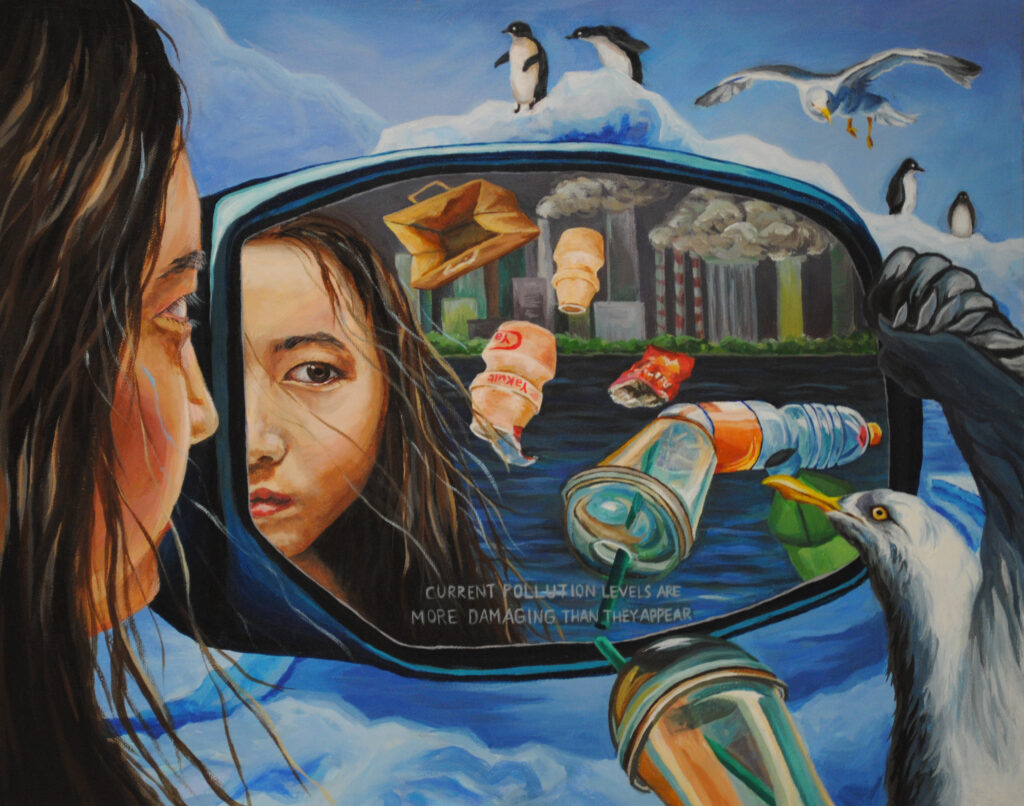
I took this picture near the summit of Haleakala National Park this summer in Maui. I was walking with my family along a trail when we stopped and sat down. I framed the picture around my sister as she was looking at the view. I also used Adobe Lightroom to make the picture look more like a painting and emphasize the softer sides of the mountain.
Ryan Podnar is a seventeen-year-old student at North Allegheny Senior High School in Pittsburgh, Pennsylvania. He uses photography as a way to express himself and convey to others how he sees the world. He can be found walking in nature taking pictures and exploring new themes to write about.
